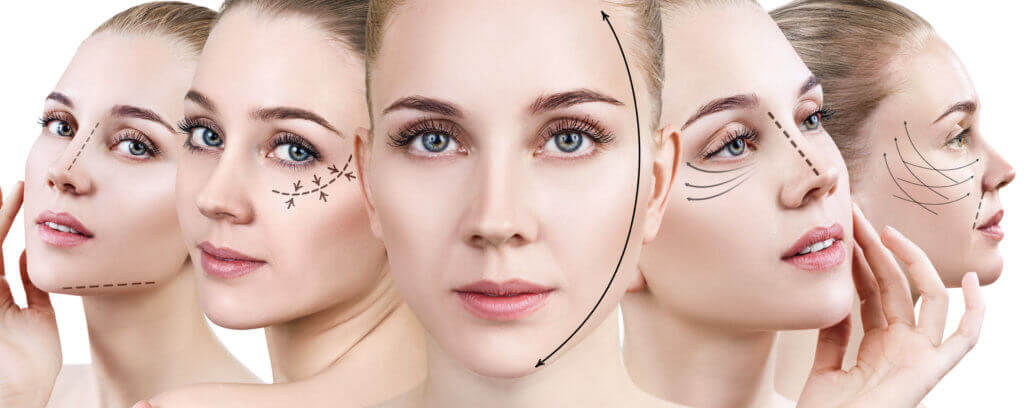Cosmetic surgery and plastic surgery are two frequently conflated terms. Despite an abundance of similarities existing between the two types of procedures, they are two completely different fields.
What is the difference between cosmetic surgery and plastic surgery?
Cosmetic surgery deals with aesthetics and is primarily used for the enhancement of a patient’s appearance. Common types of cosmetic surgery include liposuction (which is used to decrease a patient’s fat content and for general body contouring), rhinoplasty (used to shape a patient’s nose), and breast enhancement (which is used to a augment a patient’s breasts). Because of cosmetic surgery’s primary purpose of improving one’s aesthetic appearance, these types of procedures are generally not considered essential for patient health.
Plastic surgery, on the other hand, is not focused on aesthetics but, instead, on bodily or facial reconstruction. This procedure type is commonly used to treat congenital disabilities and injuries. Many patients who undergo plastic surgery need the procedure for their health, life, or everyday functions.
What are the benefits of cosmetic and plastic surgery?
The benefits of plastic surgery are more concrete than those of cosmetic surgery. With proper plastic surgery, patients can enjoy improved function and less difficulty going about their everyday life, depending on the procedure. For instance, a burn victim may undergo plastic surgery to breathe easier and complete day-to-day tasks more seamlessly.
Conversely, the benefits of cosmetic surgery are more difficult to measure. A patient who has undergone cosmetic surgery may have improved mood and self-esteem, and therefore, a better quality of life.

Who are the candidates for each?
The candidates for plastic surgery are those who have experienced physical trauma resulting in scarring or other long-lasting effects (e.g., burn victims, car accident survivors, etc.). Furthermore, plastic surgery candidates include those who may have birth defects that cause trouble in everyday activities.
Candidates for cosmetic surgery fall under a broader range: most people who express a desire for cosmetic surgery can be possible candidates. Usually, those who do not qualify for cosmetic surgery are those who are seeking cosmetic surgery to replace a healthy lifestyle. For example, someone who is severely obese and is not willing to exercise and eat a healthy diet would not be an ideal candidate for a cosmetic procedure designed to reduce fat like CoolSculpting.
What is the insurance coverage for plastic and cosmetic surgery?
Insurance coverage differs on a case-by-case basis. Usually, however, insurance is more likely to cover plastic surgery if the operation is necessary for one’s everyday life. Typically, cosmetic surgery is not guaranteed to be covered by insurance.

